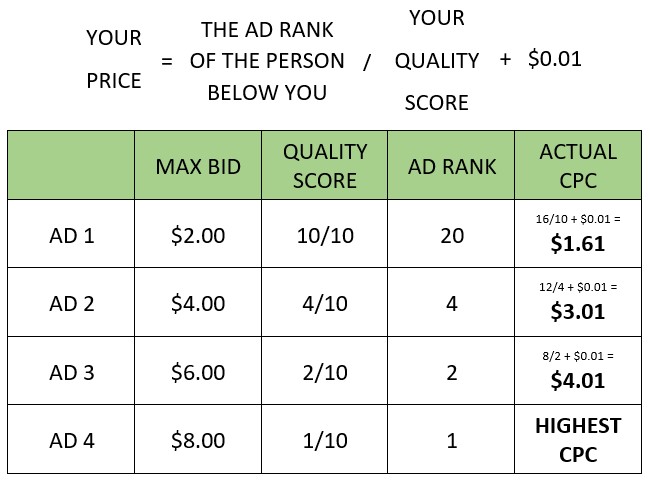Search Engine Marketing (SEM)
Category: Marketing | Posted date: 2021-03-18 22:12:37 | Posted by: Admin

Search engine marketing is also known as SEM is one of the effective ways for your business to grow in a competitive marketplace. It is important to advertise online with millions of businesses out there, search engine marketing is also one of the most effective ways to grow and promote your business.
SEM Overview
Search engine marketing is the practice of promoting a business utilizing paid advertisements that show up on search engine results pages (or SERPs). Advertisers offered keywords that clients of the search engine such as Google and Bing might enter when searching for certain items or services, which gives the advertiser the opportunity for their advertisements to appear alongside results for those search queries.
Ads also known as pay-per-click ads, came in a variety of formats. Text-based ads, Product listings ads (PLA was also known by the term as Shopping ads) were more visual. These product-based ads provide important information at-a-glance like price and customer reviews.
SEM vs. SEO: What's the difference?
For the most part, "search engine marketing" alludes to paid search marketing, a framework where organizations pay Google to show their advertisements in the search results.
Search engine advancement, or SEO, is distinctive because organizations don't pay Google for traffic and snaps; rather, they procure a free spot in the search results by having the most applicable substance for a given catchphrase search.
Both SEO and SEM ought to be central pieces of your web-based marketing technique. SEO is an incredible method to drive evergreen traffic at the highest point of the pipe, while search engine advertisements are an exceptionally financially savvy approach to drive changes at the lower part of the pipe.
Search Engine Marketing's Foundation: Keywords
Keywords are the establishment of search engine marketing. As clients enter keywords (as a component of search questions) into search engines to discover what they're searching for, it should come as little astonishment that keywords structure the premise of search engine marketing as a publicizing system.
Before you can pick which keywords to use in your search engine marketing efforts, you need to lead far-reaching research as a component of your watchword the executive's methodology.
In the first place, you need to distinguish keywords that apply to your business and that imminent clients are probably going to utilize while searching for your items and administrations. One approach to achieve this is by utilizing WordStream's Free Watchword Tool.
Essentially enter a catchphrase that is pertinent to your business or administration, and see related watchword idea thoughts that can frame the premise of different search engine marketing efforts.
WordStream's Free Watchword Tool furnishes you with a scope of significant data, for example, search volume for every individual catchphrase in Google and its overall intensity.
As well as causing you to discover keywords you ought to offer, intensive catchphrase research can likewise assist you with distinguishing negative keywords – search terms that you ought to reject from your missions. Negative keywords aren't terms with negative implications, yet rather unessential terms that are profoundly far-fetched to bring about transformations. For instance, if you sell frozen yogurt, you should avoid the watchword "frozen yogurt plans", as clients searching for frozen yogurt plans are probably not going to be on the lookout for your item.
This idea is known as search aim, or the probability that a possibility will finish a buy or other wanted activity after searching for a given term. A few keywords are considered to have a high business goal or a solid sign that the searcher needs to purchase something. Instances of high business aim keywords include:
- Buy
- Discount(s)
- Coupon(s)
- Free Shipping
Search Engine Marketing Ad Auction
Quite possibly the most suffering misinterpretations about search engine marketing are that whoever has the biggest publicizing spending wins. Albeit a bigger promoting spending plan can positively be invaluable, particularly while focusing on exceptionally serious keywords, however, it's a long way from a necessity for progress with search engine marketing. This is because all advertisements go through an interaction known as the promotion closeout before showing up close by search results. For the motivations behind this clarification, we'll be zeroing in on the advertisement closeout in Google AdWords.
The advertisement auction measure happens every time somebody enters a search inquiry into Google. To be gone into the promotion auction, publicists recognize keywords they need to offer and state the amount they will spend (per click) to have their advertisements show up close by results identifying those keywords. On the off chance that Google verifies that the keywords you have offered are contained inside a client's search question, your promotions are gone into the advertisement auction.
Importance of Quality Score in SEM
Given that Google AdWords' Quality Score includes half of the advertisement rank equation, it is perhaps the most vital metrics search engine advertisers can zero in on. Top-notch Scores can assist you with accomplishing promotion positions at lower costs since Google favors advertisements that are profoundly applicable to client inquiries.
In the table underneath, you can see that although Sponsor 1 has the least great offer, they have the best Score, which means their advertisements are given need regarding arrangement during the promotion auction:

